UC Berkeley Web Feature
Faculty Nightstand: Professors Scott Saul, Julia Hastings, and David Presti tell what they're reading at home
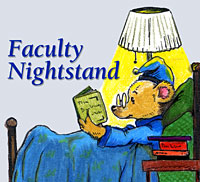 BERKELEY – Before
school starts, all UC Berkeley freshmen are sent
the annual Summer
Reading List, an eclectic collection
of literary recommendations from people all over
campus. Inspired by this popular feature, we've
decided to invite a rotating cast of
UC Berkeley faculty members to share what they're
reading — and why.
This first "Faculty Nightstand" installment
has three very different recommendations to get you
started.
BERKELEY – Before
school starts, all UC Berkeley freshmen are sent
the annual Summer
Reading List, an eclectic collection
of literary recommendations from people all over
campus. Inspired by this popular feature, we've
decided to invite a rotating cast of
UC Berkeley faculty members to share what they're
reading — and why.
This first "Faculty Nightstand" installment
has three very different recommendations to get you
started.
Read something you'd like to share? Don't wait to be invited — e-mail us.
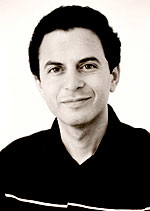 The
People's Act of Love
The
People's Act of Love
James Meek
Canongate,
2005
Scott Saul, associate professor of English: From one angle, it's "Anna Karenina" meets "The Silence of the Lambs" — a wealthy Russian woman seduced into adultery by a mastermind who may also be a cannibal. From another, it's "Red Calvary" meets "American Pastoral" — an intellectual Jewish soldier meditating on the ethics of bomb-throwing in a revolutionary age. But whatever your points of reference, "The People's Act of Love" is a novel that grabs you by the lapels and won't let go. It's intellectually meaty and completely riveting at once, its characters swept up in a political maelstrom that pushes them to a set of harrowing conclusions, all of which resonate with each other — and compete with each other, too. The novel's atmosphere is thick with ideas, with romance, and with menace: it opens, tellingly, with the mixed scents of textbooks, cologne, and dynamite.
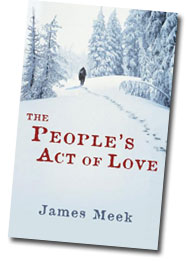 The novel's main action takes place in the
frosty Siberian outback; it's the tail-end
of World War I and Year One of the Russian Revolution.
An escaped convict, Samarin, drifts into a town
that hangs in a state of political limbo: a regiment
of the Czech Foreign Legion, hired out by the Tsar,
still acts as the civilian authority even though
the Bolshevik Army seems certain to complete its
triumphant sweep from the west to the east of the
country. Soon Samarin starts exerting a magnetic
charm in town, beguiling his audiences with tales
of his escape from the gulag's terrors, but
the novel leaves suspended his real identity: he
might be a visionary, a brute, a fabulist, a confidence
man — or all of the above.
The novel's main action takes place in the
frosty Siberian outback; it's the tail-end
of World War I and Year One of the Russian Revolution.
An escaped convict, Samarin, drifts into a town
that hangs in a state of political limbo: a regiment
of the Czech Foreign Legion, hired out by the Tsar,
still acts as the civilian authority even though
the Bolshevik Army seems certain to complete its
triumphant sweep from the west to the east of the
country. Soon Samarin starts exerting a magnetic
charm in town, beguiling his audiences with tales
of his escape from the gulag's terrors, but
the novel leaves suspended his real identity: he
might be a visionary, a brute, a fabulist, a confidence
man — or all of the above.
The plot takes a number of sensational twists and turns — mutilated corpses pile up, a sect of castrates reveals itself, a young child is kidnapped and used as a human shield — but Meek has decided, marvelously, to narrate his action with a kind of scrupulous restraint, so that the unbelievable seems just this side of normal. It's the perfect tone for a novel that forces us to consider how extreme situations breed extreme solutions, and how difficult it can be to balance the ends of an ideology with its means. Which is to say: the novel may be set in the 1910s, but it poses some chilly, absorbing questions of our post-9/11 moment also.
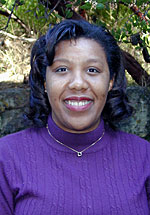 The Innocent
Man
The Innocent
Man
John Grisham
Doubleday, 2006
Julia F. Hastings, assistant professor, School of Social Welfare: I'm a Grisham fanatic and have read every book he's written. His latest is his first work of nonfiction, and it covers a sad tale of the Oklahoma penal system and how easily wrongful convictions can occur under tremendous public pressure to convict.
It's about a man who was arrested
for raping and killing a young woman in Ada, Oklahoma. 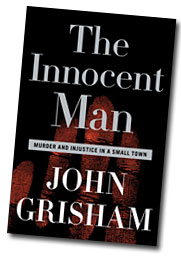 Ron
Williamson had been a baseball star in high school
with dreams of becoming a professional player with
the Oakland A's and the New York Yankees. Unfortunately,
he became addicted to drugs and alcohol and enjoyed
frequenting bars for "fun." He was convicted
on hearsay because he was in the wrong place at the
time of the murder. His initial court case went
through the justice system without his obvious
mental-health problems ever being recognized or reliably
treated, and he was sentenced to death. Eventually
he did receive treatment on death row.
Ron
Williamson had been a baseball star in high school
with dreams of becoming a professional player with
the Oakland A's and the New York Yankees. Unfortunately,
he became addicted to drugs and alcohol and enjoyed
frequenting bars for "fun." He was convicted
on hearsay because he was in the wrong place at the
time of the murder. His initial court case went
through the justice system without his obvious
mental-health problems ever being recognized or reliably
treated, and he was sentenced to death. Eventually
he did receive treatment on death row.
Then Barry Scheck, who started The Innocence Project, was looking into a very similar case, for which two other people from Ada were wrongfully convicted, and someone else from the project took on Williamson's appeal. He actually was granted a new trial, and his mental illness was entered into evidence, along with DNA evidence. The new information pretty much exonerated him. The truly sad part of this story is that Ron was a heavy smoker and drinker, and his health and mental illness had gone untreated for years; he died of cancer soon after he was released.
Compared to Grisham's previous books, this one was just chilling because I knew it was reality. It was shocking at times to learn that professional people would behave so unprofessionally. That's my only criticism, from a social worker's perspective. The text doesn't present mental-health professionals in a very good light because no one advocated for Williamson's mental state until he had served many years on death row. It is unfortunate that many professionals can forget, due to incredibly high caseloads and little time, the impact they can have on lives.
I would recommend this book for anyone, whether you're for or against the death penalty, because it makes you think hard about the penal system, the people who actually are put to death, and those potential innocents who linger on death row.
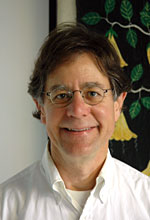 Wilson's
Ghost: Reducing the Risk of Conflict, Killing, and
Catastrophe in the 21st Century
Wilson's
Ghost: Reducing the Risk of Conflict, Killing, and
Catastrophe in the 21st Century
Robert S. McNamara and
James G. Blight
Public Affairs, 2001
David Presti, senior lecturer
of neurobiology:
"Wilson" is
Woodrow Wilson, president of the United States during
and immediately after World War I, who advocated
a non-vengeful peace treaty to end that war and
a powerful multilateral League of Nations to preserve
the peace. Both
goals failed, and
the 20th century went on to be by far the bloodiest
in human history.
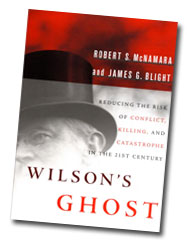 This
book puts forth a plan of wise action to reduce future
conflict among people, a plan grounded on three imperatives:
reducing human killing, cooperating multilaterally,
and developing empathy for adversaries. These ideas
are developed with care and rigor by authors who
have witnessed and studied foreign policy for many
decades. (McNamara was the U.S. secretary of defense
during the Vietnam War, and Blight is an expert on
international relations.) They call for utilizing
capacities of human behavior that are among the most
laudable of our species, but all too frequently forgotten
in the frenzies of fear, revenge, and large-group
behavior.
This
book puts forth a plan of wise action to reduce future
conflict among people, a plan grounded on three imperatives:
reducing human killing, cooperating multilaterally,
and developing empathy for adversaries. These ideas
are developed with care and rigor by authors who
have witnessed and studied foreign policy for many
decades. (McNamara was the U.S. secretary of defense
during the Vietnam War, and Blight is an expert on
international relations.) They call for utilizing
capacities of human behavior that are among the most
laudable of our species, but all too frequently forgotten
in the frenzies of fear, revenge, and large-group
behavior.
Other bedside reads: "The Omnivore's Dilemma" by Michael Pollan (actually, anything by Pollan) and "I Am Charlotte Simmons" by Tom Wolfe (ditto).
Photo credits: Faculty Nightstand illustration by Public Affairs' own Jean Smith; Hastings photo by Wendy Edelstein.

